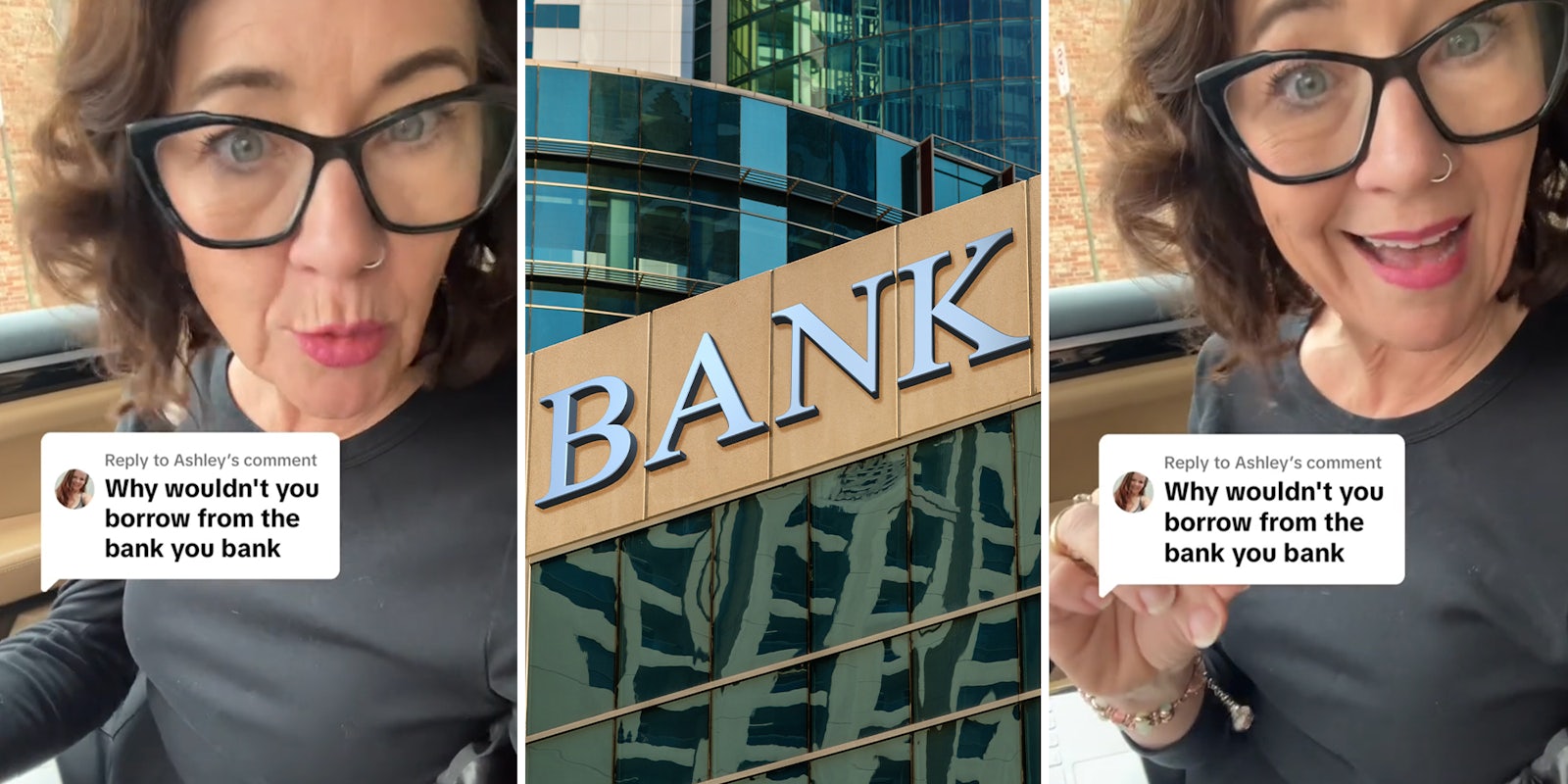A bankruptcy lawyer offers advice about the process of dealing with debts, saying that “one of my rules is I will never borrow money from the bank where I bank at.”
The TikTok video, put up on Dec. 29, comes from Adrienne Hines, a bankruptcy attorney with the Sandusky, Ohio-based Kademenos, Wisehart, Hines, Dolyk & Wright Co. LPA firm. The video went up on Hines’ the Lady Like Lawyer (@theladylikelawyer) account, drawing more than 717,200 views since landing on the platform.
She clarifies her position by saying, “I will never borrow money from an institution that has eyes on my actual deposits and my financial activity. Because if I ever default, and I know nobody ever plans to, but sh*t happens, and if you ever can’t pay that bill, the problem with your banking institution is they know everything about you.”
She goes on to explain that they know your deposit history, your average tax returns, and other information that might work against you. “And so when you have a problem financially,” she points out, “the creditors who come after you the quickest are the ones who know the most about you.”
She also says, “The other issue is setoff. They can take the money out of your account. In many situations in many states under many rules.”
@theladylikelawyer Replying to @Ashley Why do I advise people my Ohio bankruptcy clients to NEVER borrow money from the bank where they deposit their money? What would be the problem with borrowing money from your own bank? #debtreliefwithdignity #bankruptcybasics #financialliteracy #bankruptcylawyer #noshame #noembarrassment #financialfreedom #lifeafterbankruptcy #bank #setoff #bankruptcy #lawyer #lawyersoftiktok ♬ original sound – Adrienne Hines
According to Nolo, there are two main types of bankruptcy that people use when they can’t meet with mounting debts. Chapter 7, for those who qualify, is a liquidation of debts that allows people to get a quick start over. That article notes, “The ‘automatic stay’ order stops most creditors from pursuing collection efforts as soon as you file. Three to four months after filing, Chapter 7 bankruptcy “discharges” or erases qualifying debts, such as credit card balances, medical bills, and personal loans.”
Chapter 13 bankruptcy is a reorganization of debts, “a reorganization bankruptcy designed for debtors with regular income who have enough left each month to pay back at least a portion of their debts. The amount you’ll repay will depend on how much you earn, your debt, and how much property you own.”
Commenters brought their observations to the table.
“My mom had car repossessed and they took $$ out of her account,” shared one commenter.
Another said, “It should be mentioned though that sometimes the bank you have an existing relationship with will be the only one willing to lend you money.”
Someone else suggested, regarding that advice, “Exactly, so move the money once they approve the loan.”
One commenter claimed, “I worked for a CU and they wouldn’t let people take money out if they were late on their car payments, cc, or equity. this is absolutely the smartest way to go! keep it separate people!”
Another commenter shared, “My husband recently missed a [credit card] payment and they took a partial payment (left us $0 in checking) to cover it and then we didn’t have grocery money.”
Update, Jan. 8, 7:25 a.m. CT: Hines, responding to the Daily Dot via email, said, “When it went viral, I realized that people out there are hungry for information about debt that doesn’t make them feel like they’re immoral or ‘bad’ for looking at bankruptcy as a legitimate problem-solving tool. I saw the questions flooding my page asking very basic information about finances, and it was a wake-up call that people out there still think bankruptcy will ruin their lives (it won’t) and that they could never recover and go on to live financially healthy lives (they will).”
She added, “If I could drill down all the advice I could give into a one-line sentence, it would be this: ‘If you have unmanageable unsecured debt (credit cards, medical bills, personal loans) AND you do not have a clear plan to both pay off your debt and avoid taking on any more debt, then you should talk to a bankruptcy lawyer BEFORE you liquidate any portion of your pension or retirement plan and before you liquidate any equity in a home you own.’”



